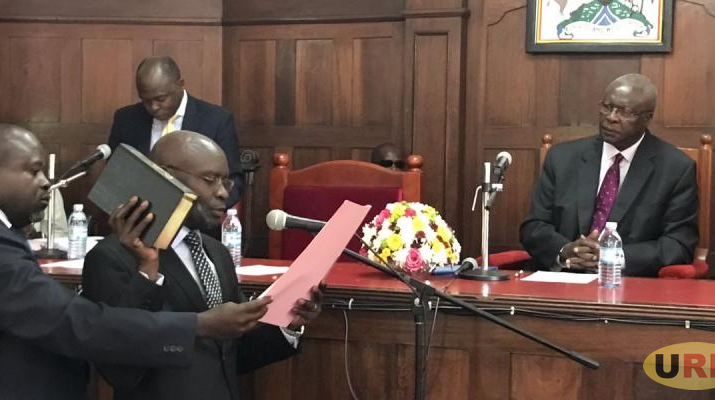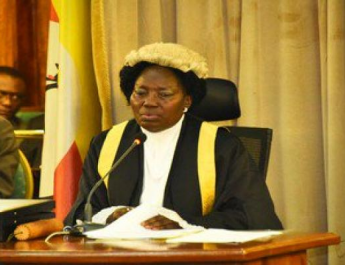Parliament has approved a proposal that requires judicial officers to resign from the judiciary when they take up special assignments exceeding four years. The approved provision gives a specified period for judicial officers who are assigned, appointed or seconded to serve or perform duties in other institutions.
This stems from the discussion and consideration of clauses in the Administration of Judiciary Bill, 2018. The Bill seeks to provide for powers and administrative independence of the Judiciary. The Bill specifically provided that judicial officers appointed, seconded or assigned to an institution outside the judiciary shall apply to the Chief Justice for leave of absence.
The Chief Justice would grant the applicant leave of absence without pay or other benefits for a period not exceeding 5 years. On Tuesday, the Attorney General, William Byaruhanga proposed that judicial officers appointed and seconded for duties outside the judiciary should now apply to the Judicial Service Commission-JSC for leave without pay.
He explained that although the judicial officers shall return to the judiciary after completing the special duties, the JSC should exclude the time they were away on unpaid leave when computing their retirement benefits. Byaruhanga’s amendments are similar to the provisions of the Public Service Act, which require public officers appointed, seconded and assigned outside public service to apply for unpaid leave.
Secondment is where a pensioned officer is employed with an international body, which has a quota to be filled by Uganda for a maximum of 5 years. The duration when seconded officers are away from the public service is pensionable and their position is not filled.
Byaruhanga explained that the duration of unpaid leave for officers appointed or assigned outside the mainstream public service is not pensionable and that their positions can be filled when they are away. He also proposed that officers in acting position can be appointed to fill the gap left by justices of the Supreme Court, Court of Appeal and High Court who are seconded for special assignments.
However, several MPs including the Ndorwa East MP, Wilfred Niwagaba suggested periods less than 5 years. Niwagaba, who is also the Shadow Attorney General, argued that since MPs had disagreed over the provision twice, they had reached consensus of a three year period. The Bunyole West MP, James Waluswaka proposed 2 years while Bugweri County MP, Abdu Katuntu supported Niwagaba.
The three MPs however say that a shorter period of absence will address staffing shortfalls, which affects judicial performance and delivery of justice. Currently, six justices of the Court of Appeal have special assignments including Justice Simon Byabakama, who is the Electoral Commission Chairperson.
Byabakama was appointed EC chairperson in November 2016 for a 7 year renewable term. Katuntu argues that such judicial officers should resign so that they are replaced in the judiciary.
However, Gomba West MP, Robinah Rwakoojo noted that a three year period would be too short and therefore supported the government proposal of five years.
Byaruhanga thereafter amended the provision further and proposed a period not exceeding four years after several MPs rejected the 5 year period. The Speaker, Rebecca Kadaga put the question that the proposal should be passed as amended by Byaruhanga amidst opposition from Niwagaba and Waluswaka.
Approving this provision marked a milestone in the consideration of the Bill since the House had failed to agree on the provision twice. However, the House failed to pass the Bill after three weeks of consideration due to disagreements on clauses regarding retirement benefits for judicial officers.

The News Editor ,Reporter at Kagadi Kibaale community Radio




